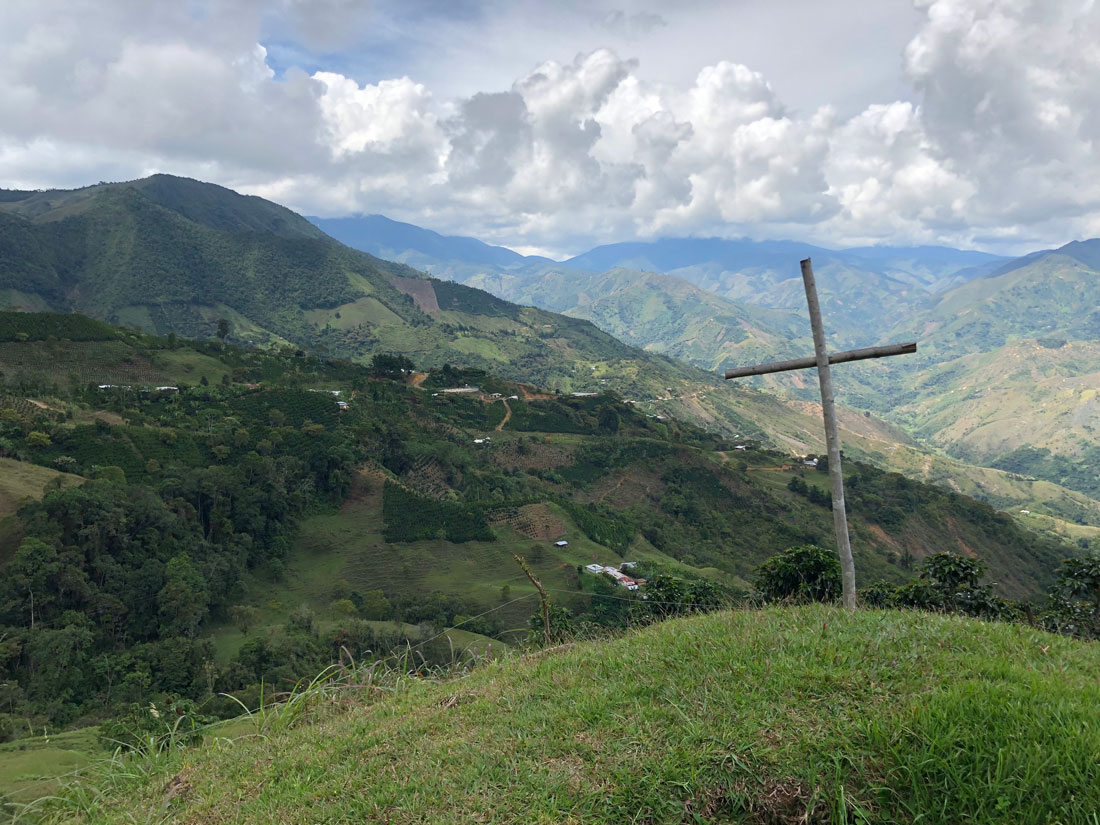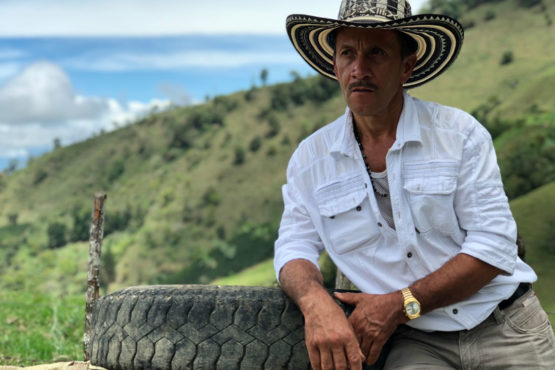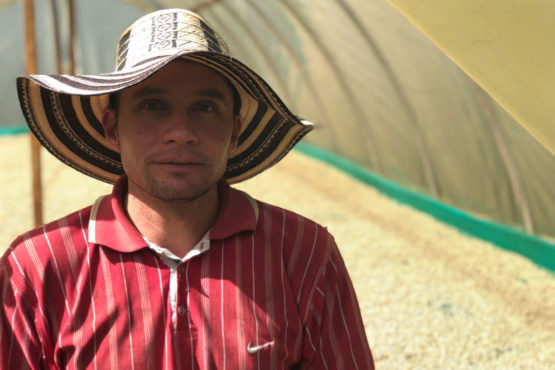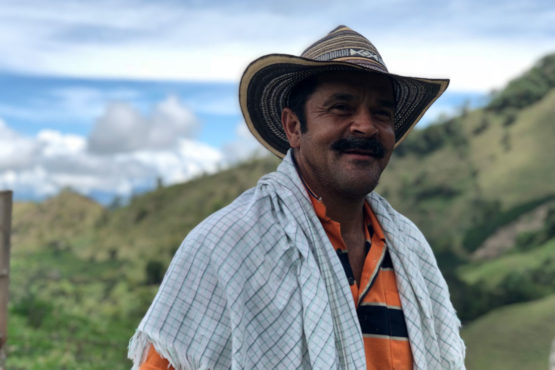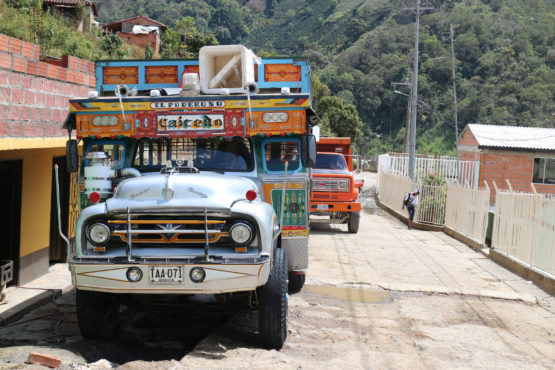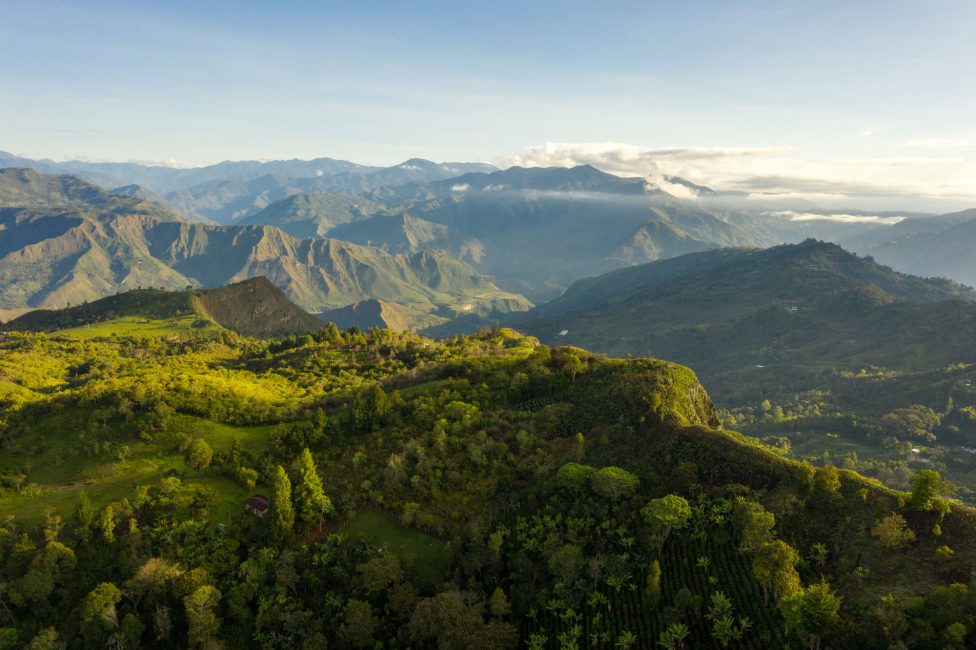Small Producers of Caicedo
Bright and balanced, with soft persimmon and apple acidity, honey and plum. Hazelnut and cocoa powder on the finish.
This coffee was grown and processed by nine smallholder producers that are situated around the town and municipality of Caicedo, located in the high mountains of Western Antioquia, Colombia. The producers are Ruben Dario Gomez, Juan Tabares, Edgar Jimenez, Jairo Alcaraz, Argiro Alcaraz, Jesus Rivera, Over Rivera, Duberlay Rivera and Bernando Montoya.
During the 1990s and 2000s, this area was very dangerous, with different rebel and paramilitary groups vying for control of the region. The small town of Caicedo and its surrounds witnessed extreme violence, while coffee farmers suffered exploitation and extortion. Thankfully, times have changed and Caicedo now is in a peaceful economic renaissance, where specialty coffee production is playing a crucial role in helping communities flourish and gain prosperity.
The farms that contributed to this lot are very small – on average just 2.5 hectares in size – and are located at a staggering 1900-2200m above sea level. The coffee is grown on the side of a deep canyon, which drops down to the mighty Cauca River, some 500m above sea level. The steep canyon walls trap warm currents, which circulate to higher ground, allowing for coffee to be grown at elevations that are unheard of in other parts of Antioquia. The unique geological attributes of the region contribute to the outstanding cup profile of coffees farmed and processed in the area.
Coffee in Caicedo is farmed with traditional techniques. Fertilisation occurs around three times a year, usually after manual weeding, and pesticides are rarely used. The coffee is selectively hand-harvested, with most labour being provided by the farmers and their families.
ABOUT ANTIOQUIA
Antioquia is located in central North-Western Colombia. Coffee was introduced to the region in the latter part of the 19thcentury. Since then, this mountainous, fertile department has 128,000 hectares of coffee that are produced by a mix of large estates and tiny farms.
Antioquia only recently became more accessible to specialty coffee buyers – largely thanks to a transformation of the department led by Sergio Fajardo, who was the governor of the department in 2012-2016. Sergio transformed Antioquia’s capital city, Medellín, from a violent and dangerous place to a world-class tourist destination with a strong economy. Coffee has played a significant role in this transformation, and as access to many producers has improved, the region has become one of Colombia’s most important and celebrated coffee-producing areas.
This coffee is sourced by our export partners, Pergamino, who work with over 50 small, independent farmers in and around the town of Caicedo. Pergamino has done a lot to help promote commercialisation of specialty coffee throughout Antioquia and have actively been working to source and support coffee producers in regions where there is a high potential for quality, but that historically have not had access to specialty buyers.
During harvest, the farmers deliver small lots (around 100-150kg) of dried parchment to Pergamino’s warehouse every 2-3 weeks. Upon delivery, a sample of the dried parchment is milled and assessed for physical attributes, including uniformity of size, presence of defects, moisture content and seed to hull ratio. If the coffee passes the physical assessment it is accepted and the farmer receives their first payment for the coffee, calculated by the weight delivered and a base rate related to the physical quality of the parchment.
The coffee is then cupped and assessed for sensory attributes. After being accepted by the team in Caicedo the coffees are transported to Pergamino’s QC lab in Medellin, where they are further assessed by an expert team of cuppers. Each lot is carefully evaluated and, based on the cup score and profile, the coffee is sorted into different grades of quality and combined into exportable sized lots. Feedback on each lot is relayed back to the producer and after it has sold a second payment is made to the producer according to premium the coffee attracted.
The team at Pergamino cups through hundreds of small lots at their QC lab in Medellin, to select the coffees that are blended together into this special regional lot. The coffees included were chosen for their outstanding cup profile and distinct regional characteristics.
HOW THIS COFFEE WAS PROCESSED
The coffees in this lot were selectively hand-harvested, with most labour being provided by the farmers and their families. They were processed using the washed method at each farm’s ‘micro-beneficio’ (mill).
The coffee was pulped using a small manual or electric pulper, and then placed into a fermentation tank, where it was fermented for around 48 hours (depending on the weather and the farm’s location) and then washed using cold, clean water from the Rio Cauca.
It was then carefully sun-dried over 10–18 days. Most farmers in the area use the “Casa Elba” system for drying, where parchment is laid out to dry on rooftop patios (usually on top of the farmhouse). A retractable roof on a pulley system can be pulled over the coffee to protect it during rainy weather or to slow down the drying process when it is very hot and sunny. Rakes are used to turn the coffee regularly during the drying stage, to ensure even drying.
Once dry, the coffee was delivered to Pergamino’s warehouse, where it was cupped and graded, and then rested in parchment until it was ready for export.
Read more about our Colombian export partner, Pergamino, here.
